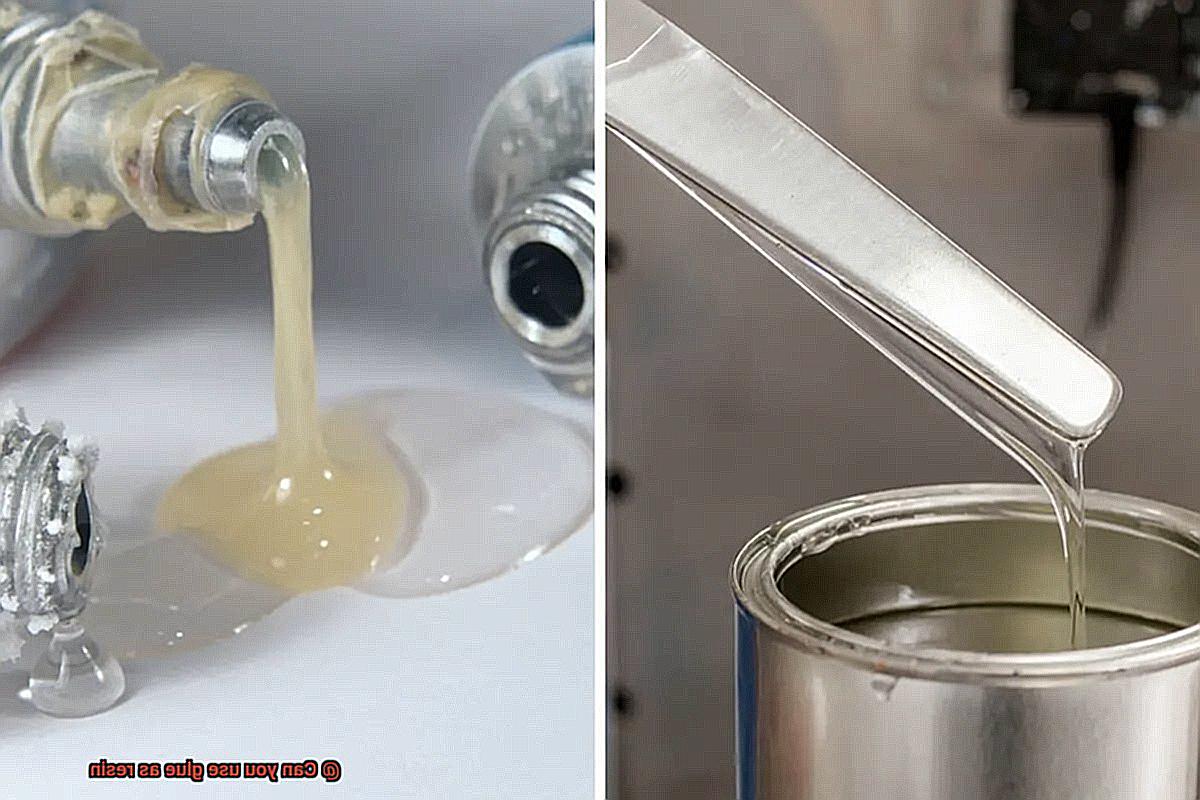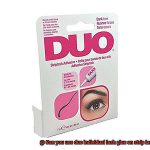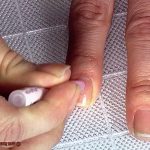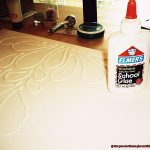Have you ever found yourself in the middle of a DIY project, only to realize that you’re out of resin? It’s a frustrating situation, but what if we told you that there’s a solution right in your own home? Yes, we’re talking about glue. But can you really use glue as resin?
The answer is yes, but before you start substituting one for the other, it’s important to understand that glue and resin are not interchangeable. Using glue instead of resin can have significant implications on your project’s outcome and longevity.
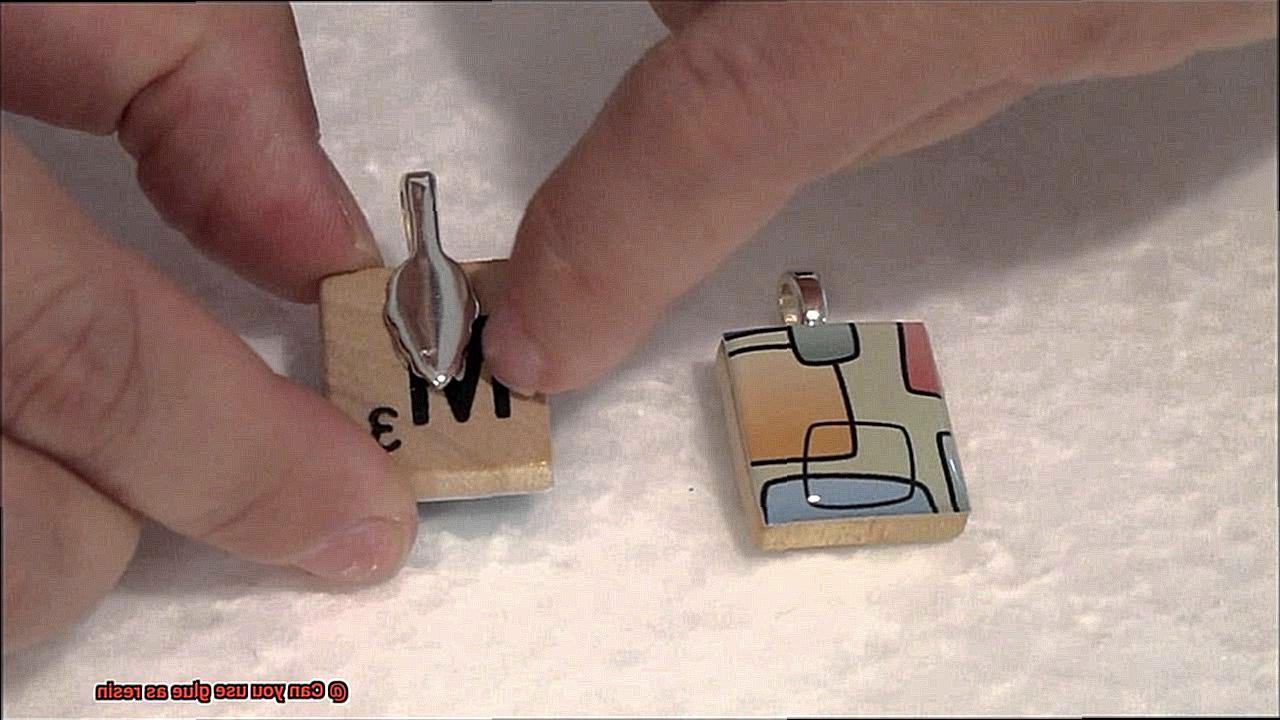
In this blog post, we’ll take a deep dive into the world of glue and resin and explore their differences. We’ll also discuss situations where using glue as a substitute can work and how to do it effectively.
From PVA to epoxy to cyanoacrylate, we’ll introduce you to various types of glues with unique properties. You’ll learn which type of glue would best serve as a substitute for resin in different scenarios.
Whether you’re an experienced DIY enthusiast or just starting out, join us on this journey of discovering how to use glue as resin effectively. Let’s get started.
Exploring the Differences Between Glue and Resin
Contents
- 1 Exploring the Differences Between Glue and Resin
- 2 What Types of Glue Can Be Used as Substitutes for Resin?
- 3 Pros and Cons of Using Glue as a Substitute for Resin
- 4 Safety Considerations When Using Glue as a Substitute for Resin
- 5 Tips for Getting the Best Results When Using Glue as a Substitute for Resin
- 6 Common Applications for Using Glue as a Substitute for Resin
- 7 Alternatives to Using Glue as a Substitute for Resin
- 8 Conclusion
When it comes to adhesives, glue and resin are two of the most commonly used in various industries. While they might seem similar, they have unique differences that make them suitable for different applications. Let’s dive into their chemical composition, strength and durability, and application.
Chemical Composition
Glue is typically made by dissolving natural or synthetic polymers in a solvent. This results in a sticky adhesive that is perfect for bonding materials together. In contrast, resin is produced by combining two or more chemicals through a chemical reaction. It’s a liquid or semi-solid substance that hardens into a clear, durable finish.
Strength and Durability
Perhaps one of the most significant differences between glue and resin is their strength and durability. Glue tends to be weaker than resin and may break down over time due to exposure to moisture or heat. Resin, on the other hand, has excellent adhesive properties and can withstand extreme temperatures and harsh chemicals. This makes it an ideal option for industrial applications such as coatings and adhesives.
Application
Glue is commonly used for bonding materials together, such as paper, cardboard, and wood. It’s also popularly used in arts and crafts projects. In contrast, resin is often used for coating surfaces like floors, countertops, and furniture. It’s also suitable for casting purposes such as creating molds or figurines.
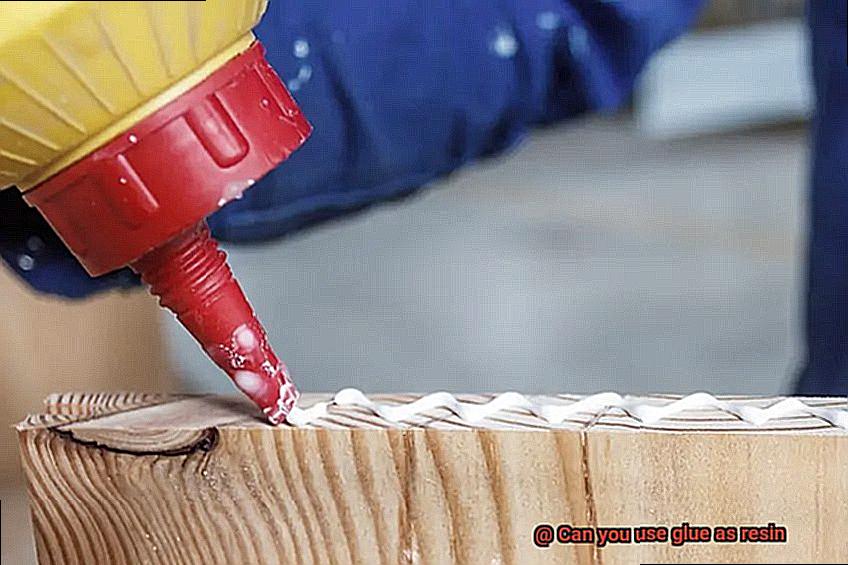
Can You Use Glue as Resin?
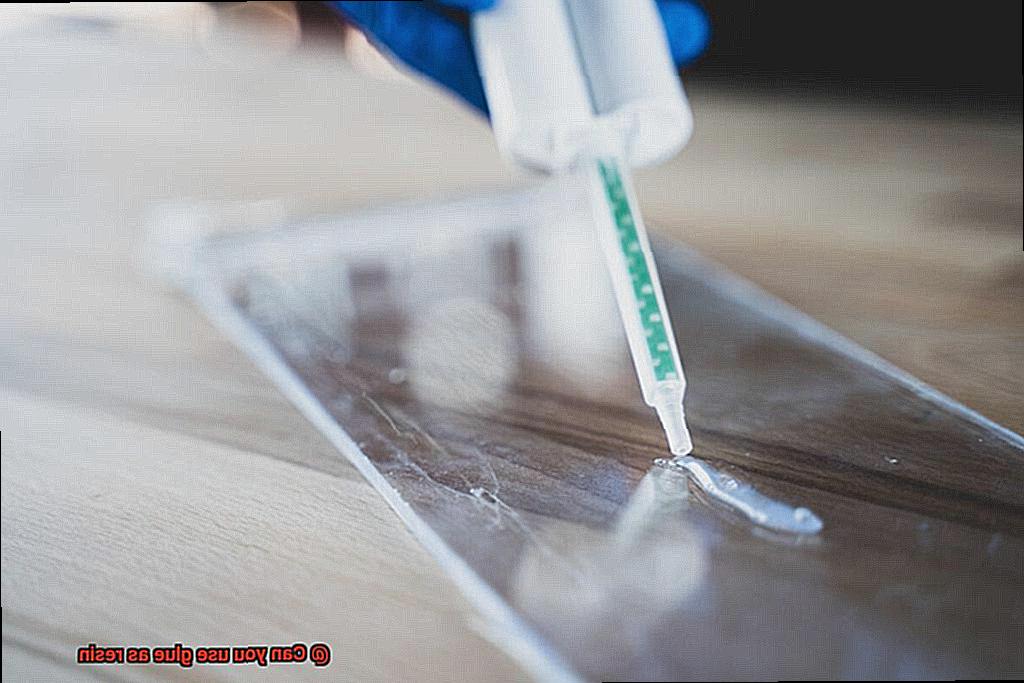
While some types of glue may have similar properties to resin, they are not interchangeable. For instance, white glue like Elmer’s is not suitable for use as resin because it doesn’t dry clear nor harden to the same degree as resin. However, epoxy glue can be used as a substitute for resin in some applications like coating surfaces or filling gaps.
It’s worth noting that substituting glue for resin may not produce the same results as using actual resin. Glue may not provide the same level of durability or clarity, and may not be suitable for certain projects. Additionally, using glue in a way that it was not intended to be used can compromise its effectiveness and potentially create safety hazards.
Conclusion
What Types of Glue Can Be Used as Substitutes for Resin?
Resin is a popular material used by artists and crafters for various projects. However, what if you don’t have any resin on hand? Can you use glue as a substitute? The answer is yes, but it depends on the project and its requirements. In this guide, we’ll explore the different types of glue that can be used as substitutes for resin.
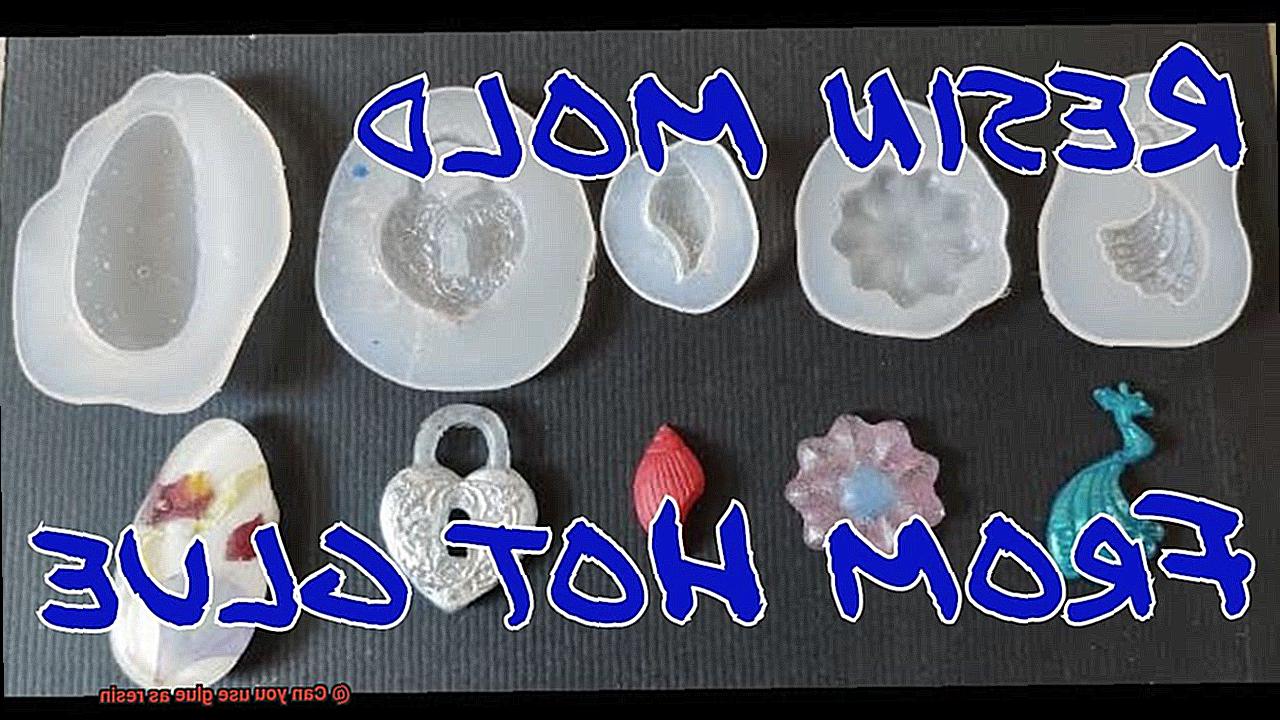
- Epoxy Glue: This type of glue is a two-part adhesive that consists of a resin and a hardener. When mixed together, they create a strong and durable bond that can be used for various purposes, including as a substitute for resin. Epoxy glue is commonly used in woodworking, jewelry making, and other crafts. It is also waterproof and heat-resistant, making it suitable for outdoor applications.
- Cyanoacrylate Glue (Superglue): This fast-drying adhesive bonds quickly and strongly to most surfaces. It can be used as a substitute for resin in small projects or repairs, but may not be suitable for larger projects due to its brittle nature. Superglue is ideal for bonding materials such as metal, plastic, and wood.
- Polyurethane Glue: This one-part adhesive expands as it dries, filling any gaps or voids between the surfaces being bonded. It can be used to bond materials such as wood, metal, and plastic. Polyurethane glue is also waterproof and heat-resistant, making it suitable for outdoor applications.
- PVA Glue: This type of glue is commonly known as white glue or school glue. It is non-toxic and easy to use, making it ideal for children’s crafts. While PVA glue may not offer the same level of strength as resin, it can still be effective in certain situations.
- Hot Glue: This fast-drying adhesive is ideal for bonding materials such as fabric, foam, and paper. Hot glue is commonly used in DIY projects and home repairs. While it may not offer the same level of durability as resin, it can still be effective in certain situations.
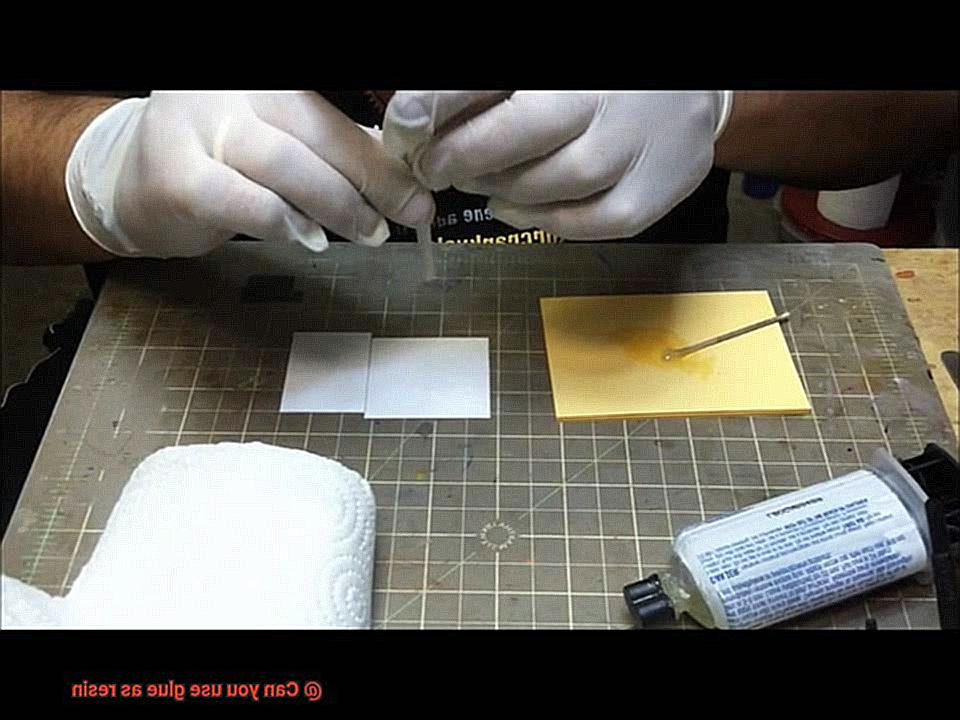
While these types of glues can be used as substitutes for resin, they may not always provide the same level of durability or finish as resin. It’s important to test the glue on a small area before committing to using it as a substitute for resin in larger projects. It’s also important to follow the manufacturer’s instructions carefully to ensure proper use and application.
Pros and Cons of Using Glue as a Substitute for Resin
While it may seem like a quick and easy solution, it’s important to understand the pros and cons before making a decision.
The pros of using glue are that it’s often cheaper and more readily available than traditional resins. This makes it a convenient option for those on a tight budget or without access to specialized materials. Additionally, some types of glue can be easier to apply and work with than resins, making them a great choice for beginners.
However, there are also several downsides to using glue as a substitute for resin. One major issue is that many types of glue do not provide the same level of strength and durability as resins. This could lead to problems with cracking or breaking over time, especially if your project will be exposed to frequent wear and tear. Moreover, some types of glue may not have the same level of resistance to heat or chemicals that resins do, which could limit their usefulness in certain applications.
Another potential drawback is that using glue may not provide the same level of clarity or transparency that many people desire from their finished products. Some types of glue may dry clear, but others may have a slightly yellow or cloudy appearance that could impact the overall aesthetic of a project. If you’re looking for a high-gloss finish or crystal-clear transparency, using resin instead might be the better choice.
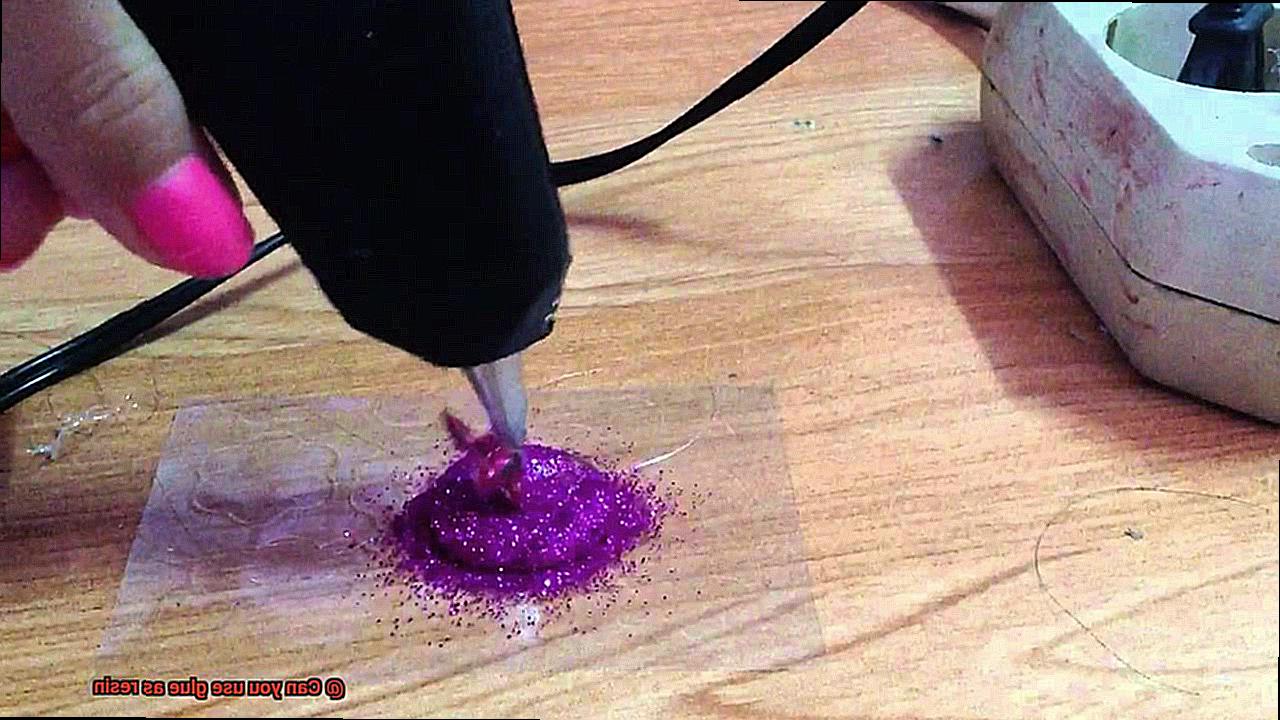
In summary, whether to use glue or resin for your project depends on your specific needs and goals. While using glue can be a great option in some cases, it’s important to carefully consider the potential drawbacks and limitations before making a final decision. Here’s a quick summary of the pros and cons:
Pros:
- Cheaper and more widely available than traditional resins.
- Some types of glue are easier to apply and work with than resins.
Cons:
- Many types of glue don’t provide the same level of strength or durability as resins.
- Some types of glue may not have the same level of resistance to heat or chemicals as resins.
- Glue may not provide the same level of clarity or transparency that many people desire from their finished products.
Safety Considerations When Using Glue as a Substitute for Resin
While this may be a practical and economical solution, it’s important to keep in mind the potential safety hazards involved.
The first and foremost safety consideration is choosing the right type of glue for your project. Not all types of glue are safe for every application, and some may contain toxic chemicals that can be harmful if ingested or come into contact with skin. It’s crucial to read the label carefully before use and ensure that the glue you select is appropriate for your intended purpose.
In addition, proper personal protective equipment (PPE) is essential when working with glue. Protective gloves and eyewear should be worn to minimize exposure to harmful chemicals. Moreover, it’s crucial to work in a well-ventilated area to avoid inhaling any fumes or dust during the gluing process.
Another critical aspect to consider is the environmental impact of using glue. Improper disposal of excess glue can be detrimental to the environment. Therefore, it’s essential to follow proper disposal procedures and refrain from releasing any leftover glue into the environment.
Tips for Getting the Best Results When Using Glue as a Substitute for Resin
When it comes to using glue as a substitute for resin in your art projects, there are certain tips that can help you achieve the best results. Here are five sub-sections that will guide you through the process.
Choose the Right Type of Glue
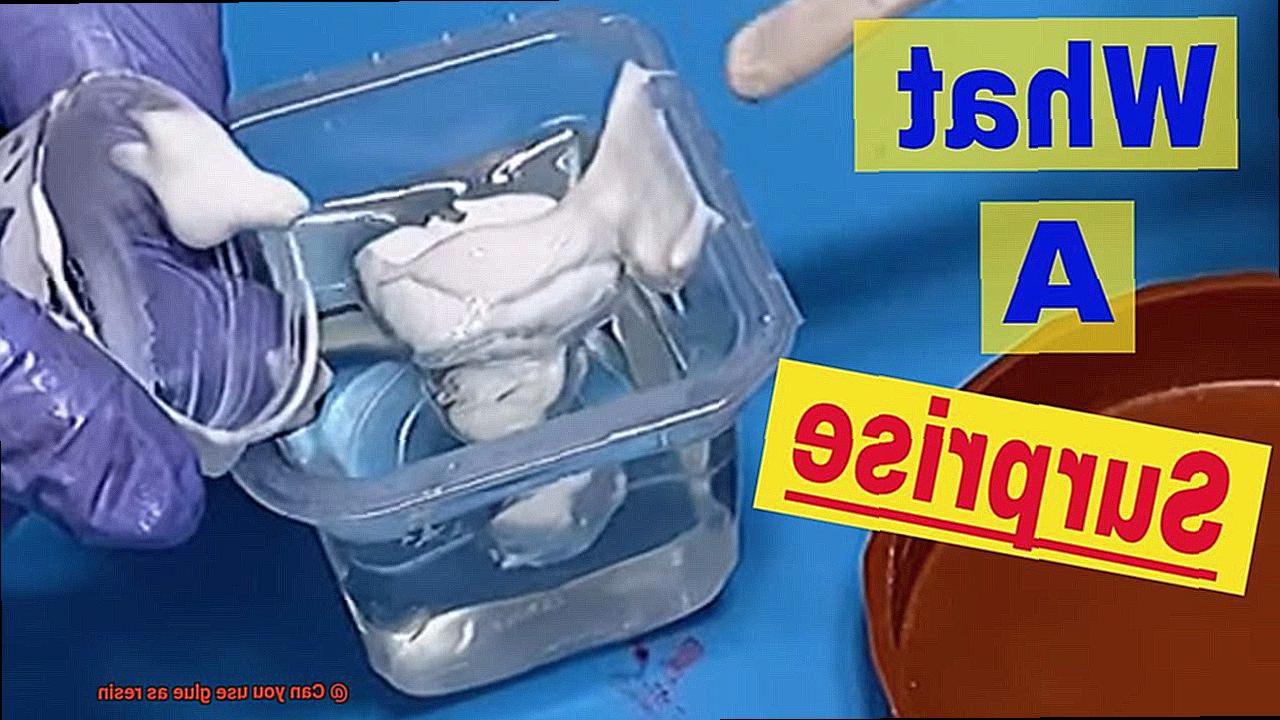
Selecting the right type of glue is crucial to achieving good results. It is important to choose glue that dries clear and hard, such as epoxy or cyanoacrylate glue. These types of glue provide a strong bond and a smooth finish that is similar to resin. On the other hand, white glue or school glue will not be suitable for this purpose.
Prepare Your Surface Properly
As with resin, it is important to prepare your surface properly before applying glue. This includes cleaning and sanding the surface to remove any dirt, debris, or rough spots. A smooth surface will allow the glue to adhere better and create a stronger bond. Make sure that the surface is clean, dry, and free from any dust or debris. This will help the glue adhere properly and prevent any bubbles from forming.
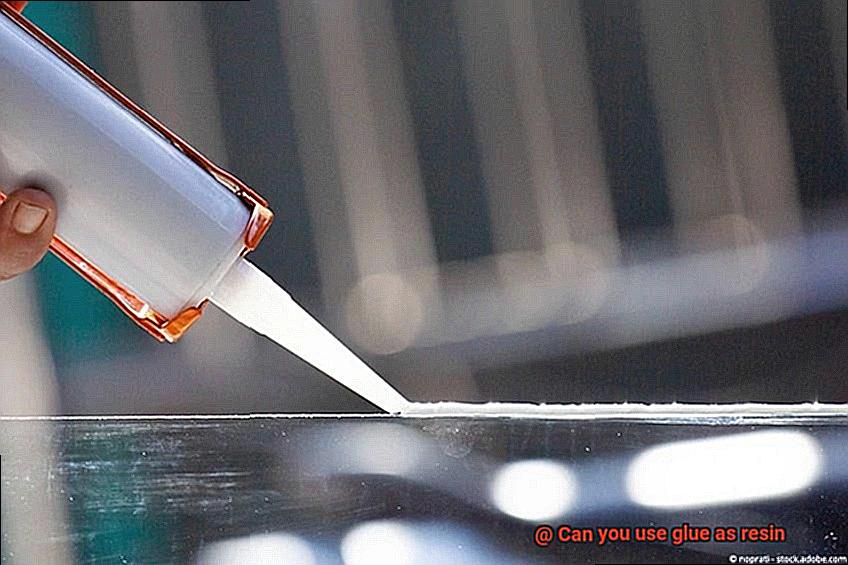
Apply the Glue in Thin Layers
When applying glue as a substitute for resin, it is important to do so in thin layers and let each layer dry completely before adding another one. This will help prevent air bubbles from forming and ensure that the glue dries evenly. Applying too much glue can cause it to overflow and create an uneven surface, while too little glue may not provide enough strength. To remove any bubbles that do form, you can use a small torch or heat gun.
Give the Glue Enough Time to Dry and Cure Properly
One of the most important tips for using glue as a substitute for resin is giving it enough time to dry and cure properly. This may take longer than resin, so be patient and follow the manufacturer’s instructions for drying time. Rushing this step can result in a weaker bond and potential failure of the project. Make sure that you give the glue enough time to dry and cure properly before handling or sanding it.
Consider Glue’s Limitations
While glue can be a good alternative to resin in some cases, it may not always be suitable for all projects and may not provide the same level of durability or resistance to heat and moisture. It is important to assess each project individually and determine if glue is the best option. Keep in mind that glue may not provide the same level of strength and durability as resin.
Common Applications for Using Glue as a Substitute for Resin
While it may not always be the perfect substitute, there are many common applications where glue can be just as effective and provide a similar finish.
One of the most popular uses for glue as a resin substitute is in woodworking projects. Woodworkers use glue to fill small gaps or cracks in their projects, as well as to seal the wood and create a smooth finish. Polyurethane or epoxy glue can work well as a substitute for resin, providing the necessary durability and strength.
Jewelers also often turn to glue for their projects, using it to attach small beads or stones, create intricate patterns and designs, and even mimic the look of resin by layering and sealing the glue with a clear topcoat.
Glue can also be used in various DIY projects, such as creating custom phone cases or coating photographs for a glossy finish. Artists even use glue as a medium for their artwork, layering and sculpting it to create unique 3D pieces.
Alternatives to Using Glue as a Substitute for Resin
As an expert in adhesives, I have researched and compiled a list of alternatives that you can consider. These options may not be as strong or durable as resin, but they can still provide a solid adhesive for your project.
Let’s start with epoxy, a two-part adhesive known for its strength and durability. It is commonly used in woodworking and construction projects but can also be used for smaller craft projects. Epoxy dries clear and can be sanded down to a smooth finish. Though it may be more expensive than traditional glue, the results are worth the investment.
Another alternative to consider is polyurethane, a popular adhesive for bonding wood and other materials. Its water resistance makes it ideal for outdoor projects. However, it can be difficult to work with and may require some skill to apply correctly.
If you need something fast-drying with the ability to bond almost any material together, cyanoacrylate (super glue) is your answer. Though it may not be as strong or durable as resin or other adhesives, it is a great option for quick fixes.
It’s important to note that while these alternatives may work in certain situations, they may not be suitable for all projects. Be sure to do your research and choose the best adhesive for your specific needs. Keep in mind that every project has different requirements, so consider factors like strength, durability, cost, and ease of use when making your decision.
Gr4jeHTIsz4″ >
Conclusion
In the end, it’s clear that glue and resin are not interchangeable, despite their superficial similarities. From their chemical composition to their application, these two substances have unique differences that can make a significant impact on the success of your project.
That being said, there are situations where glue can be used as a substitute for resin. If you’re working on a woodworking or jewelry making project, epoxy glue is an excellent option. For bonding metal, plastic or wood, cyanoacrylate glue (also known as superglue) is ideal. And if you need to fill gaps between surfaces being bonded, polyurethane glue is your go-to choice.
Of course, using glue instead of resin comes with its own set of pros and cons. While it may be cheaper and more accessible than traditional resins, it may not provide the same level of strength or durability. Additionally, safety should always be a top priority when working with adhesives.
Ultimately, whether you use glue or resin for your project depends on your specific needs and goals. Before making a final decision, take the time to carefully consider all potential drawbacks and limitations.

